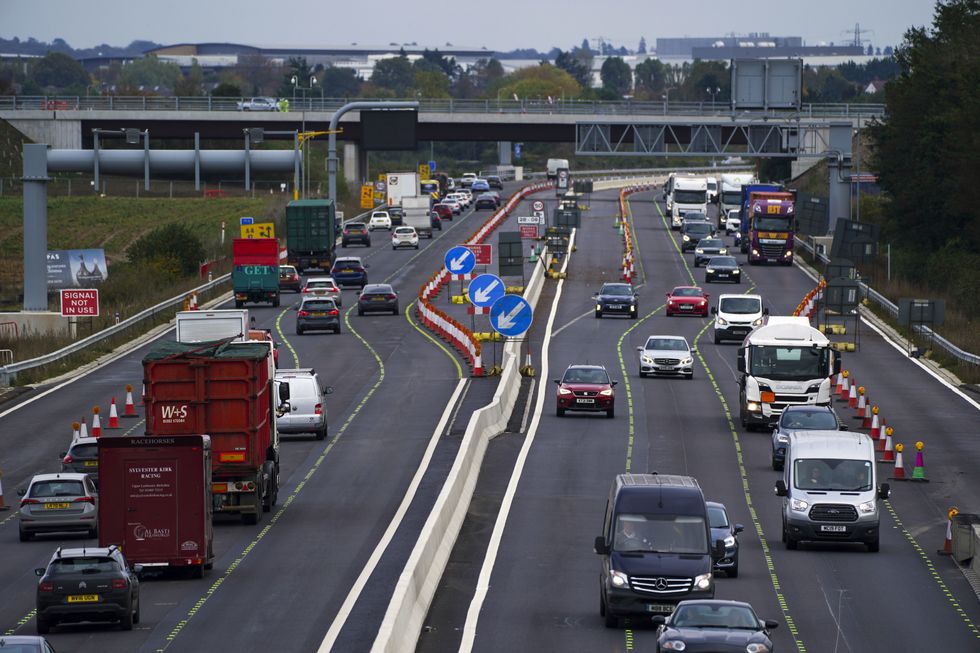Company car tax rates are only available until 2028 despite experts demanding clarity on new costs
Don't Miss
Most Read
Trending on GB News
Leading industry experts have called on the Government to provide more guidance for drivers and businesses with upcoming car tax changes.
With the start of the new tax year in April, drivers and experts have stressed the importance of the Government publishing car tax plans beyond 2028.
Company car tax, or Benefit-in-Kind (BiK) tax, is paid by motorists and businesses if they drive a vehicle through an employment scheme.
In the 2022 Autumn Statement, HMRC unveiled the new tax rates for BiK tax until the 2028 tax year, with most vehicles seeing a one per cent increase annually.
Do you have a story you'd like to share? Get in touch by emailingmotoring@gbnews.uk

New car tax changes will be launching in less than two weeks
PAElectric vehicles attract the lowest rate of company car tax given their lack of tailpipe emissions, with the incentive acting as a major helping hand for people looking to switch.
In the upcoming 2024-25 tax year, people with electric vehicles will pay a BiK tax rate of two per cent, although this will rise by one per cent every year after that.
With the currently available tax rates for company car taxes, businesses can plan as far as 2027-28, when electric vehicles and the lowest polluting hybrid vehicles will pay a five per cent tax.
While the Government will need to up taxes on EVs over the coming years to increase their tax revenues, the incentive is one of the leading drivers of increasing numbers of EVs on roads.
Since companies do not yet know the tax rates beyond 2028, they may be put off from investing in electric since they could be hit with a huge bill before the end of their lease.
Matthew Walters, head of consultancy services and customer value at ALD Automotive | LeasePlan UK, highlighted the importance of car tax rates.
Many drivers and businesses sign contracts for vehicles which can last for a number of years and with a lack of clarity on the tax bands, many may be put off from investing in electric.
He continued, saying: “Publishing company car tax bands beyond April 2028 is already important.
“Businesses are still enduring extended delivery times for new vehicles, and longer lifespans are increasingly common.
“Some fleets will already have cars on order that will still be on the road after the current tax bands expire.”
Although the tax bands for electric cars are increasing over the next four years, owners of the most polluting vehicles will see their payments frozen.
Vehicles that produce more than 160g of CO2 per kilometre currently pay a BiK tax rate of 37 per cent, with this rate not rising until 2028.
LATEST DEVELOPMENTS:
- Car tax changes in April could force drivers off roads as Britons struggle to deal with the cost of motoring
- Ford expected to launch new £20,000 electric car in 2026 to rival Tesla and shake up EV market
- Drivers deliberately breaking parking laws will be 'sanctioned accordingly' for the 'worst kind of behaviour'

Electric vans attract a far lower BiK tax rate than other petrol or diesel vans
PASome experts have criticised the decision not to continue increasing the rate of tax on the most polluting petrol and diesel vehicles as a further motivating factor to get people beyond the wheel of electric vehicles.
However, a four per cent surcharge is applied to diesel vehicles which do not meet the RDE2 standard.









